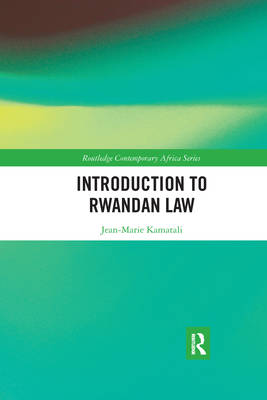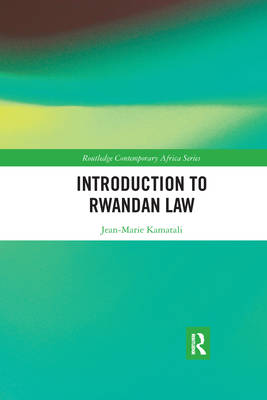
- Retrait gratuit dans votre magasin Club
- 7.000.000 titres dans notre catalogue
- Payer en toute sécurité
- Toujours un magasin près de chez vous
- Retrait gratuit dans votre magasin Club
- 7.000.000 titres dans notre catalogue
- Payer en toute sécurité
- Toujours un magasin près de chez vous
Description
This book explores key innovations in Rwandan law, exploring how the country has tried to combine the homegrown legal system with the civil law and common law legal systems to create a new hybrid legal system.
The author explores the history of Rwandan law through the pre-colonial, to colonial and post-independence periods, and examines the homegrown legal and justice approaches, such as Gacaca, Abunzi, and Imihigo, introduced to deal with legal problems that could not be dealt with using the western legal system in post genocide Rwanda. The book highlights the innovative Rwandan approach to incorporating international law in the domestic legal system; it also covers the evolution of Rwandan constitutional law and constitutionalism since independence, and the development of family law from a legal system that oppressed women to one that promotes the rights of girls and women. Finally, the book explores the combination of common law and civil law systems in the development of the new Rwandan criminal law and in the transformation of the organization, jurisdiction, and functioning of Rwandan courts.
This book will be of interest to scholars and students of African law, international law, and the legal system in Rwanda.
Spécifications
Parties prenantes
- Auteur(s) :
- Editeur:
Contenu
- Nombre de pages :
- 244
- Langue:
- Anglais
- Collection :
Caractéristiques
- EAN:
- 9781032175744
- Date de parution :
- 30-09-21
- Format:
- Livre broché
- Format numérique:
- Trade paperback (VS)
- Dimensions :
- 156 mm x 234 mm
- Poids :
- 349 g







